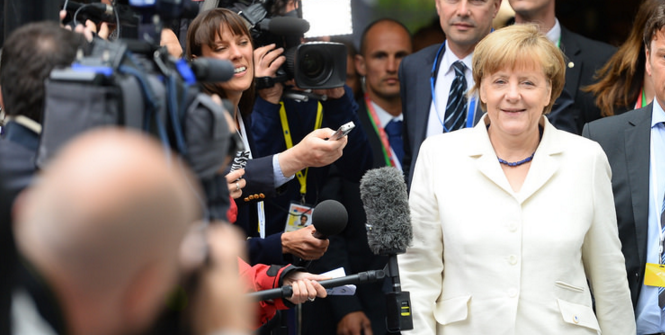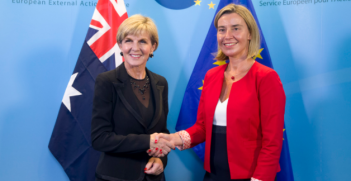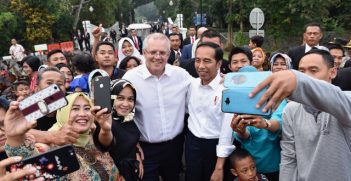Sex Attacks Row Forces Merkel to Defend Her Policies from Racism

It was New Year’s Eve 2015 in Cologne. Large groups of men roamed the streets and systematically robbed, sexually harassed and assaulted scores of German women. The women were insulted, robbed, groped and harassed generally. There were other disturbances, including mob chanting and the throwing of firecrackers, and German police moved in and dispersed the groups involved.
As the news from Cologne continued to trickle through, similar reports came from Hamburg, Bielefeld and Stuttgart. The misogynistic, sexual nature of the crimes became clearer – and it emerged that the men were apparently largely of North African or Middle Eastern origin.
Less than one month earlier, Time magazine had named Angela Merkel “Person of the Year” for 2015. This is a not an insignificant honour, and the reasons for bestowing it on Merkel were obvious: chief among them was her country’s performance during the refugee crisis.
While the governments of other developed nations were extolling the virtues of their various policies, which saw them offering to take in thousands of Syrian refugees over the coming years, Germany had taken in more than 1m in less than a year.
Merkel’s “open door” policy to asylum seekers from warzone countries has been generous, even by the standards of Germany’s liberal post 1945 asylum laws. Merkel and her policy, already under pressure domestically, have come in for intensified criticism since the attacks. A lot, as we know, can change in a week.
Yet what is the connection between these two events? Or to ask the question more pointedly: has immigration to Germany opened the door to the perpetrators of these attacks?
Angry voices
Those perpetrators may, of course, have been immigrants to Germany at some point. They will certainly be descended from migrant communities. Time will hopefully tell, as investigations into their identity and into the apparent co-ordination of the attacks are still underway.
But as ever, the manner in which some people rush to offer definitive explanations while the situation is still fluid and the facts incomplete says more about the ideologies, agendas and standpoints of the commentators as they fill in the gaps for themselves. And there’s been plenty of gap-filling already.
Predictably enough, Frauke Petry, leader of the right wing anti-immigration party Alternativ für Deutschland (Alternative for Germany), posted a tweet sarcastically asking Merkel if Germany were colourful and cosmopolitan enough for her following the attacks.
Closer to Merkel, politicians from her own CDU party and the closely aligned CSU have been demanding a range of policy shifts, including the closure of Germany’s borders to refugees and immigrants from outside the EU and the forcible deportation of immigrants found guilty of sexual offences.
That said, there have been different responses from elsewhere in Germany’s political spectrum. The current Federal Minister of Justice, Heiko Maas of the left-of-centre SPD, has called for Germans not to entangle the attacks with the immigration debate.
The eyes of the world
It’s not lost on Germany and its leaders that these events have made an impact in the international press, something that’s arguably added to tensions there. Numerous virtual and print news providers in Germany have been surveying global media, and tracking and reporting foreign coverage and the image of Germany that is being painted abroad.
The surveys detect a range of views from abroad, from those presenting the attacks as the inevitable consequence of such a period of mass immigration, to the Times and the Guardian in the UK, which predicted that the attacks would at the very least spell trouble for Merkel – though the Guardian also saw fit to emphasise that, so far, there’s no evidence that any of the suspects are recent immigrants to Germany.
The coverage in the online version of the respected weekly newspaper Die Zeit reflects the fact that even those commentaries offering a critical diagnosis of how the events will be hijacked by anti-immigration groups are inadvertently adding to the pressure on the chancellor, even without jumping to lurid conclusions about what happened. Since the critics of the anti-immigrant tendency can hardly let the other side monopolise the argument, it has fallen to Merkel to answer for her government.
Her response has been swift and clear: she found the attacks personally unacceptable and intended to pursue the perpetrators regardless of their background. She has shown a dogged commitment to helping refugees, Syrian and otherwise, and appears equally determined to hold sex offenders to account whether or not they turn out to be Muslims or recent immigrants.
In the face of increasing criticism from abroad and within Germany, her stance continues the broader German tradition of carefully weighing the rights and freedoms of one group against all others. That tradition flows from the Grundrechte, the basic human rights enshrined in Germany’s postwar constitution. It can be found, too, in other responses that tried to defy the simplistic explanation that a generous immigration policy has predictably backfired.
Take the placards carried by women demonstrating this week in Cologne, for instance. They called for the same careful weighting of multiple freedoms for which Merkel seems to be striving: “Gegen Sexismus. Gegen Rassismus” went the slogans – “Against Sexism. Against Racism”.
James Hodkinson is an Associate Professor in German at the University of Warwick. This article originally appeared on The Conversation 9 January. It is republished with permission.





